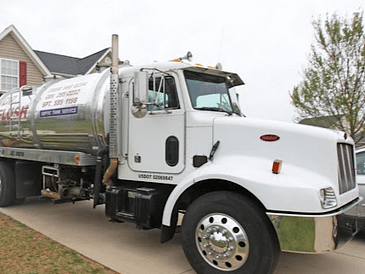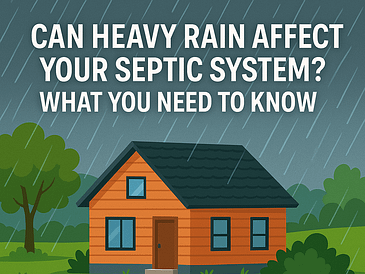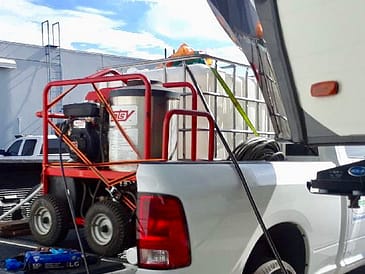Your septic tank produces gases such as hydrogen sulfide, methane and ammonia as a by-product of anaerobic bacteria in your system. These by-products should not be ignored; they are an inevitable by-product.
But when septic gas is released into the air, it can become unpleasant and potentially toxic. Thankfully, this only occurs at high concentrations.
Clogged Pipes
If you detect a foul smell coming from your septic tank outside of your home, it could be indicative of an issue with your plumbing. The most important step to take is identify where the blockage is and then contact an experienced professional to assist in solving it.
Drain blockages can occur for many reasons, and they may not be immediately obvious. A common sign that your pipes may become clogged is when they take longer to flush away waste from the system – such as having a slow-draining toilet or using the sink to do dishes or laundry.
Another reason your drains become clogged is that they become filled with debris over time. This could include hair, food particles, and soap scum.
Preventing clogs in your drain is the best way to avoid them. Be diligent about maintaining a regular cleaning schedule and always dispose of items that shouldn’t go down the sink in your trash can – such as plastic bags, coffee grounds, cigarette butts and small children’s toys. These could include things like plastic bags, coffee grounds, coffee grounds or coffee grounds from previous uses.
Baking soda can also help eliminate odors. It’s safe for both your septic tank and drains, and can be used once or twice a week to maintain an ideal pH level in your septic system.
Aside from baking soda, there are other methods you can do to reduce septic tank odors. One is pumping your tank periodically and making sure there aren’t large amounts of sludge or scum in it.
Maintaining your septic tank’s functionality helps to avoid unpleasant odors in the future. For added peace of mind, have it serviced by a plumber to make sure everything is in working order.
When your septic tank isn’t working optimally, gas can build up in the soil stack and release an unpleasant odour. Gases like hydrogen sulfide, ammonia, methane and carbon dioxide may accumulate, creating unpleasant fumes to breathe that can be toxic when inhaled at high concentrations.
If your septic tank isn’t vented properly, gases can build up in its soil stack and seep back into your yard. This could lead to an unpleasant odor both outside your home and at the septic tank.
Clogged Vent Stack
Your septic tank is connected to the sewer system via the vent stack, and this pipe allows septic gasses like carbon dioxide and hydrogen sulfide to escape outside. If this pipe becomes clogged, you may start smelling smells both outside and inside of your home.
This pipe, typically installed on the roof, serves as the primary pathway for wastewater to exit your house and also functions as a vent to allow septic gases and water vapor to escape.
Clogged vent stacks can be caused by many things, such as ice accumulation during winter or trees dropping leaves on your roof. To easily clear away this ice that forms on your pipe, use hot water or a high-pressure jet cleaner with high pressure.
A clog in the plumbing system causes air pressure to drop significantly, decreasing water pressure in drains and toilets, leading to gurgling sounds. Furthermore, P-traps become less effective at containing sewer gases as a result.
Your home may require a larger vent stack than your current 2-inch pipe, depending on its size. This is especially true if you have multiple bathrooms and sinks in one location.
Search for your vent stack on your roof by looking around or call a professional plumber to inspect and repair it. A qualified technician can determine if there’s an issue with either the vent stack itself, or somewhere else in your pipes.
A major concern of a clogged vent stack is that it can lead to an unpleasant odor in your home. This odor often emanates from toxic sewer gases which are hazardous when breathed in.
If the smell is strong and persistent, you may need to have your vent pipe repaired. If not fixed, your septic tank could eventually overflow.
To avoid these unpleasant septic tank odor problems, check all of your drains and pipes for signs of clogging. If you locate one, call a qualified plumber immediately to take care of the issue. They can clear out the blockage and restore your plumbing to proper working order quickly.
Old Tank
Old tank syndrome is a condition in which the water chemistry in an aquarium has degraded over time. This change can be hazardous to fish and even lead to their death.
Commonly, fishkeepers fail to perform enough water changes or properly maintain the aquarium. Without regular maintenance, waste material builds up in the tank which negatively affects its chemistry.
Once this occurs, the water chemistry will start to shift towards more toxic levels of ammonia and nitrite that are harmful for fish. Fortunately, it’s a relatively straightforward issue that can be corrected with time and proper attention; however, it requires patience and diligence.
First and foremost, test the nitrate and phosphate concentrations in your tank. These chemicals cause the nitrification process that converts ammonia into nitrite and then back again as nitrate. Nitrate levels must remain below 40ppm to avoid old tank syndrome, while phosphate must also remain below 20ppm.
Check your nitrate and phosphate levels with ease by performing a water test on your tank. These tests are available at most pet stores.
If your nitrate and phosphate levels are above 40 ppm, or you observe an excessive amount of algae growth, you should take immediate action. This can be accomplished through either a large or small water change.
Next, ensure the correct pH in your tank. Doing so will encourage beneficial bacteria to keep ammonia levels under control.
It is essential to remember that ammonia becomes toxic when the pH falls too low. That is why performing water tests regularly and performing water changes when necessary are so important.
In addition to testing your tank’s water, it is also wise to perform a baking soda flush in the toilet once every week to help maintain an appropriate pH level. Doing this helps prevent ammonia from building up within your tank.
In addition to these steps, you can try adding new fish raised in healthy water to your tank. These fish will adjust more quickly to the conditions than a newly added fish added into an old tank that hasn’t had time to adjust.
Contaminated Leach Field
If the inside of your home is clean and smell-free, but there’s an unpleasant odour outside, it could be due to a contaminated leach field. A leach field is part of the septic system which collects wastewater from the tank before treating it before discharging it into the ground.
The leach field consists of perforated PVC drain pipes, crushed stone, and an unsaturated layer of soil. This serves as a final filter to break down waste and eliminate odors generated by the septic system.
Typically, wastewater is pumped from the septic tank to a leach field using a pumping station. However, if the septic tank is overfilled or the drain field is blocked, wastewater may back up into the leach field.
Sewage from your toilet can contaminate both soil and water tables in the area. If you’re worried about your soil or the quality of your water, contact a plumber to inspect both your septic system and leach field for issues.
A contaminated leach field can lead to a variety of issues, such as sewage backups and foul odors from your septic tank. To avoid these complications, it’s essential that you unclog both your septic tank and leach field promptly.
To resolve a clogged leach field, shock treatment is an effective solution. This natural additive introduces billions of bacteria and enzymes into the system, digesting organic waste that’s causing your leach field to become blocked up.
Shock treatment is an efficient and environmentally safe way to treat your septic tank and leach field. Additionally, it helps prevent costly system failure that could pose a danger.
If your septic tank or leach field is malfunctioning, you may notice puddles of water on your lawn. This is due to the sewage backing up from the tank and flooding your yard.
Furthermore, you may notice your septic tank smelling like rotting eggs or sewage. This is due to a buildup of hydrogen sulfide, carbon dioxide and methane gases released into the air as waste from your system decomposes in the tank.




